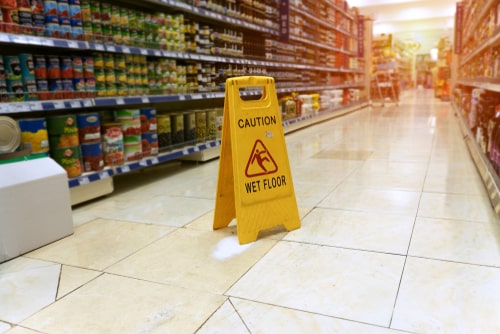Most of us have heard the details of at least one premises liability case before. Perhaps somebody fell down the steps to a store because no one bothered to make sure they were free from ice and snow, or somebody sued a supermarket because they failed to display a wet floor sign in an area that needed one. Whatever the facts of the case might have been, the end was the same: someone was injured on someone else’s property due to their negligence.
Why are subsequent remedial measures not an admission of fault?
If someone else’s negligence resulted in you being injured on their property, you could be eligible for financial compensation from the negligent party. Reach out to the North Carolina premises liability attorneys at Shapiro, Washburn & Sharp. We can explain your rights, and go over all potential sources for recovery in a free case review.
Proving Negligence in Premises Liability Cases
Being able to prove negligence is the cornerstone of any successful premises liability case. A claimant has to show that an employee or business owner was negligent by proving four distinct elements:
- That a hazardous condition was present on the premises
- That the owner or an employee was aware of, reasonably should have been aware of, or created the condition
- That the owner or employee neglected to fix, address, or otherwise warn people of the hazardous condition
- That they sustained an injury as a direct result of the failure to address the hazardous condition
Premises Liability and Subsequent Remedial Measures (Rule 407)
Subsequent Remedial Measures, also known as Rule 407 of the Federal Rules of Evidence, state that a claimant can not use the fact that a property owner or employee subsequently took the necessary actions to correct or repair the hazardous condition as proof that negligence took place.
For instance, let’s say that a claimant is suing the owner of a hotel over the fact that an outside stairwell was inadequately lit. The insufficient lighting caused the claimant to misjudge an unusually steep step and they fell and broke their ankle. The claimant then files a lawsuit against the owner of the hotel. At some point after the lawsuit is filed, the hotel owner hire a workman to install brand-new lights over the stairwell.
In this scenario, it seems logical for the claimant to try to use the fact that the owner of the hotel had new lights installed as evidence that they agreed that the stairwell was dangerous and the new lighting was necessary, otherwise why bother? Rule 407, however, states that the claimant is not allowed to use the repair as proof that the hotel owner was negligent.
While this seems wildly counterintuitive to the point of the lawsuit, Rule 407 exists because the court does not want to prevent a property owner from correcting a hazardous situation because they are afraid it will be used against them in a personal injury case. If a hazardous condition exists on the premises, it needs to be corrected as quickly as possible rather than remaining in place until the lawsuit is over. Rule 407 was designed to protect future patrons from being hurt by putting a stop to any conflict a property or business owner might feel between repairing a hazardous condition or increasing the risk that others might be injured to avoid a necessary repair being used against them in court.
The claimant can, however, use the fact that the hotel owner installed new lights to establish control or ownership of the business. They can also use the recent lighting repair to argue that it was an easy fix to make. However, feasibility, control, and ownership must actually be called into question before this type of evidence can be brought.
Do You Have a North Carolina Premises Liability Case?
If you were injured in a premises liability accident in North Carolina, you should let a qualified North Carolina personal injury lawyer from the law firm of Shapiro, Washburn & Sharp evaluate your potential claim. Call (833) 997-1774 to schedule your free consultation today.
